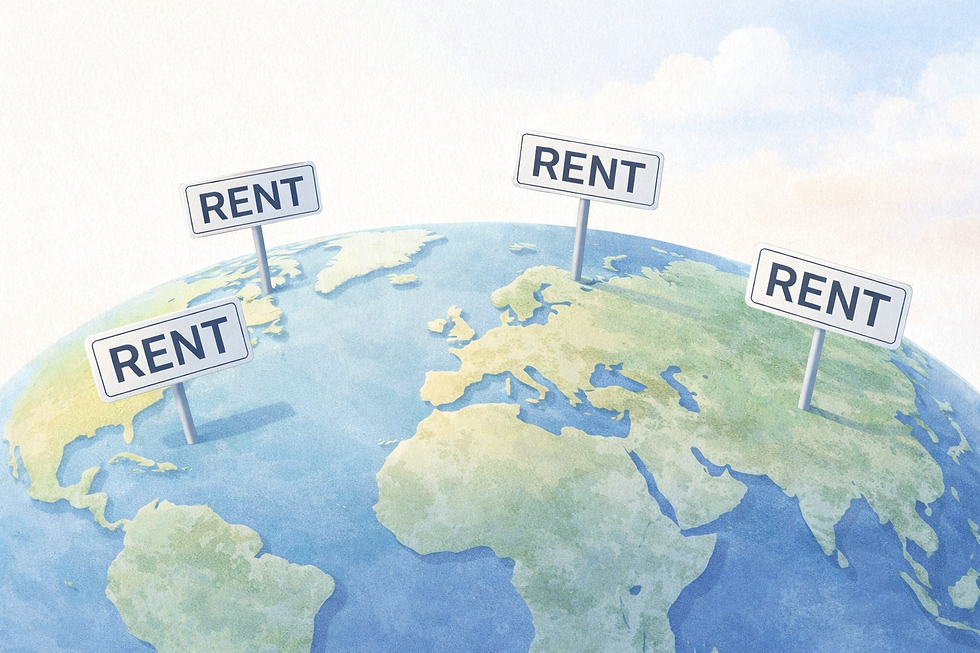Would a 50-Year Mortgage Ever Make Sense? A Financial Planner’s Take on Trump’s Proposal
- Rich Arzaga

- Nov 10, 2025
- 3 min read
Updated: Dec 14, 2025

by Rich Arzaga, CFP®, CCIM, The Real Estate Whisperer® Financial Planning
Recently, a reporter asked this question:
“President Trump has floated the idea of introducing a 50-year mortgage. While it would lower monthly payments at a time when housing affordability is near all-time lows, that trade-off of course means building equity would be a longer and slower process. How would you advise clients to think about these pros and cons? Could a 50-year mortgage make sense for some individuals, or is a mortgage of that length too risky?”
It’s a thoughtful question — and it deserves more than a simple yes or no.
1. It’s About Options, Not Opinions
I don’t see the concept of a 50-year mortgage as negative. I see it as an option — another lever to pull when balancing affordability, lifestyle, and financial priorities.
“A 50-year mortgage isn’t about paying less overall — it’s about buying flexibility when monthly cash flow is tight.”
For many Americans, the goal isn’t to build equity as fast as possible — it’s to enter homeownership without financial strain. If a longer term helps make that dream possible, it’s worth consideration.
2. The Power of Positive Leverage
From a planner’s perspective, this conversation quickly moves beyond “how long” to “how smart.”If a borrower understands and manages their long-term risk–reward behavior, extending a mortgage can work strategically.
“If your investments outpace your loan cost, extending the mortgage can actually work in your favor — that’s positive leverage.”
For example, a homeowner with a 6.5% mortgage rate but long-term investments expected to return 7.5% could benefit from the spread. Over time, that difference compounds — assuming they remain disciplined and don’t react emotionally to short-term market declines.
3. The Reality: Few People Keep Mortgages That Long
While “50 years” sounds radical, most borrowers don’t keep a mortgage for even 30 years. The average homeowner sells or refinances within 7–8 years.
“Most people won’t keep a mortgage for 50 years anyway, so it’s less radical than it sounds.”
At that timeframe, the difference in equity accumulation between a 30-year and 50-year loan is relatively small. Mortgage interest is heavily front-loaded, so both borrowers would have built similar levels of equity by year eight.
4. Inflation and Flexibility: Hidden Advantages
A long-term, fixed-rate loan can act as a hedge against inflation. Payments stay fixed while wages, rents, and asset values may rise. In that sense, locking in a long-term rate could protect purchasing power over time.
“It’s not a bad idea; it’s just a different one. Like any financial tool, it depends on who’s using it and why.”
For some, that trade-off between slower equity growth and greater monthly flexibility is entirely rational — especially if the freed-up cash is invested or used to strengthen other parts of the financial plan.
5. The Financial Planning Lens
Ultimately, the question isn’t whether a 50-year mortgage is “good” or “bad.” The better question is whether it fits the borrower’s financial goals, risk tolerance, and discipline.
“The right question isn’t ‘should I take one,’ but ‘does this align with my goals, my time horizon, and my financial discipline?’”
As a financial planner, I see this less as a controversial idea and more as an opportunity for customization. For the right household, it could be a bridge — a flexible way to achieve homeownership while keeping long-term options open.
Bottom Line
The 50-year mortgage, if introduced, would not be suitable for everyone. But it might be for someone — especially those thinking in terms of balance sheets and opportunity costs rather than just debt payoff.
More choices in the lending marketplace can empower borrowers to match financing with their financial strategy. And that, to me, is progress.




Comments